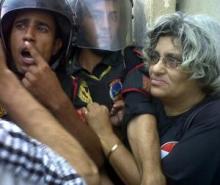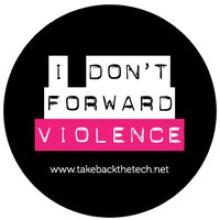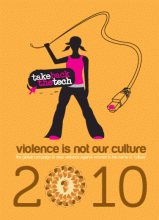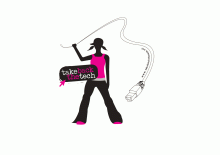Regimes cannot overcome the power of people communicating in solidarity
“The power of people communicating in solidarity and joint action is a power that even the most over-confident rulers and regimes cannot overcome, not in the long term”, said APC’s executive director Anriette Estherhuysen.
Take back the tech! Build knowledge and grow diversity.
Women's rights advocates and feminists who work on violence against women have used information and communications technologies (ICTs) strategically and tactically in our advocacy and organising. From documenting violence and abuse through the use of technology, to disseminating information and knowledge, to mobilising support and networks, to lobbying for legal and policy change - these efforts are critical in strengthening the efforts in ending violence against women. As a result, there is a rich diversity of information available on all forms of violence against women.
Take a Stand | Don’t forward
In Canada a teenager was arrested for distributing photos and a video of a sexual assault of a 16-year old girl. In South Africa, a video that depicts the alleged rape of young girl by two boys in her school is being distributed via cellphone and through the internet. The video was recorded on a cellphones by someone who was watching. These are not isolated incidents.
Violence is not our culture! Take Back The Tech! 2010
29 November is the International Day on Women Human Rights Defenders. To mark this event, Take back the tech! and "Violence is Not our Culture" global campaigns call for actions to support the work of women human rights defenders to demand the end of violence against women justified in the name of "culture", "religion" or "tradition". Take back the tech! Declare our culture as free from violence against women! Support the "Violence is Not Our Culture" global campaign!
Get creative! Explore technology! Defend women's rights! Take Back The Tech! 2010
From 25 Nov to 10 Dec, Take Back The Tech! calls on women and men to take control of technology to protect the right to freedom of expression and information. Since it began in 2006, campaigners in more than 30 countries have used the internet, mobile phones, radio and more to document and fight violence against women.









